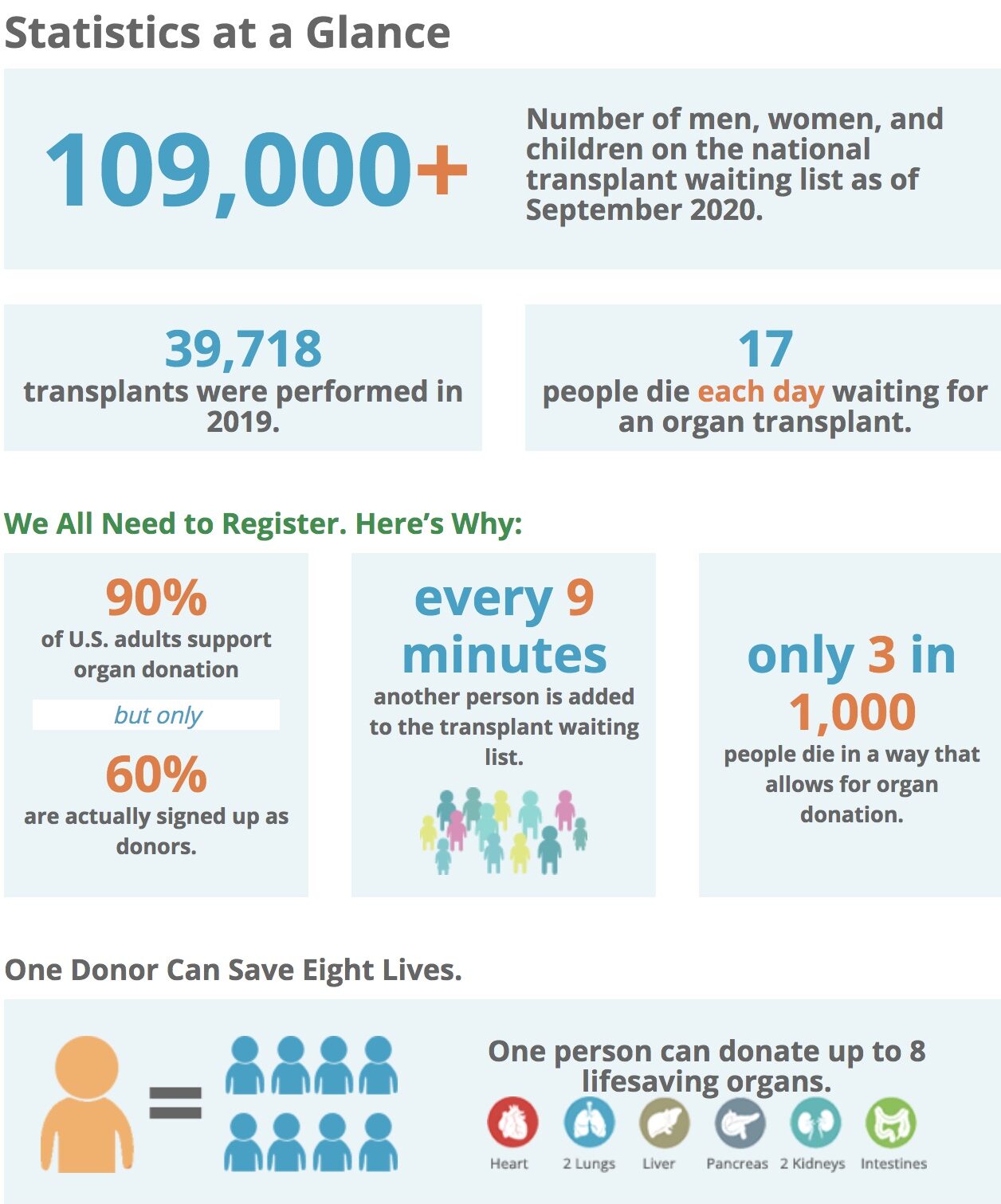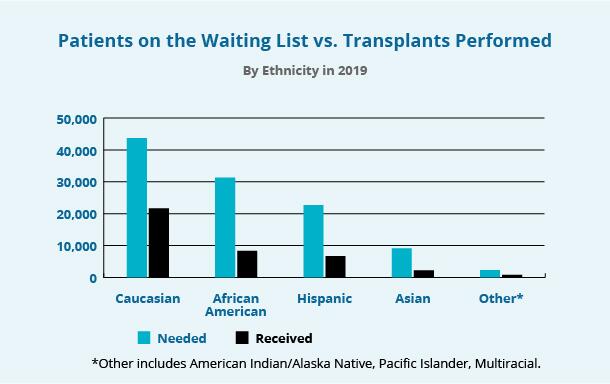I was sixteen years old when the thought of organ donation first crossed my mind.
Sitting in the DMV, I remember filling out my driver’s license paperwork and feeling mixed emotions when I reached the part of the application asking if I wanted to become an organ or tissue donor. The question felt so easy and casual on the paper, but I knew it was an important decision. I don’t recall my exact thought process but I remember it being the moment when the thought of my death became very real.
Thinking about what happens to your body after you pass away can be very intimidating and scary. The urge to avoid the topic is completely understandable but it’s worth consideration. You alone can save the lives of up to 75 people just by donating organs and tissue after you die.
As of September 2020. Over 109,000 men, women, and children were on the national transplant waiting list and roughly 17 people die each day waiting for an organ transplant. Common myths and misconceptions about organ donation discourage individuals from registering but have been clarified, read more here.

Additionally, more diverse donors are needed. The below graphic shows the current disparity in organ donation. Minorities including African Americans, Asians and Pacific Islanders, Native Americans, and Hispanics are more likely than whites to have certain chronic conditions that affect the kidneys, heart, lung, pancreas and liver. Shared ethnicity is NOT a requirement for matching organ donors and recipients but certain blood types are more prevalent in ethnic minority populations. Because matching blood type is usually necessary for transplants, the need to diversify donor organs is especially high. Learn more about matching here.

How To Donate
After taking the time to learn more and think about what organ donation means to you, becoming a donor is very easy. Below are ways you can indicate that you want to be a donor:
- Register with your state’s donor registry. Most states have registries. Check the list at organdonor.gov.
- Designate your choice on your driver’s license. Do this when you obtain or renew your license.
- Tell your family. Make sure your family knows your wishes regarding donation.





